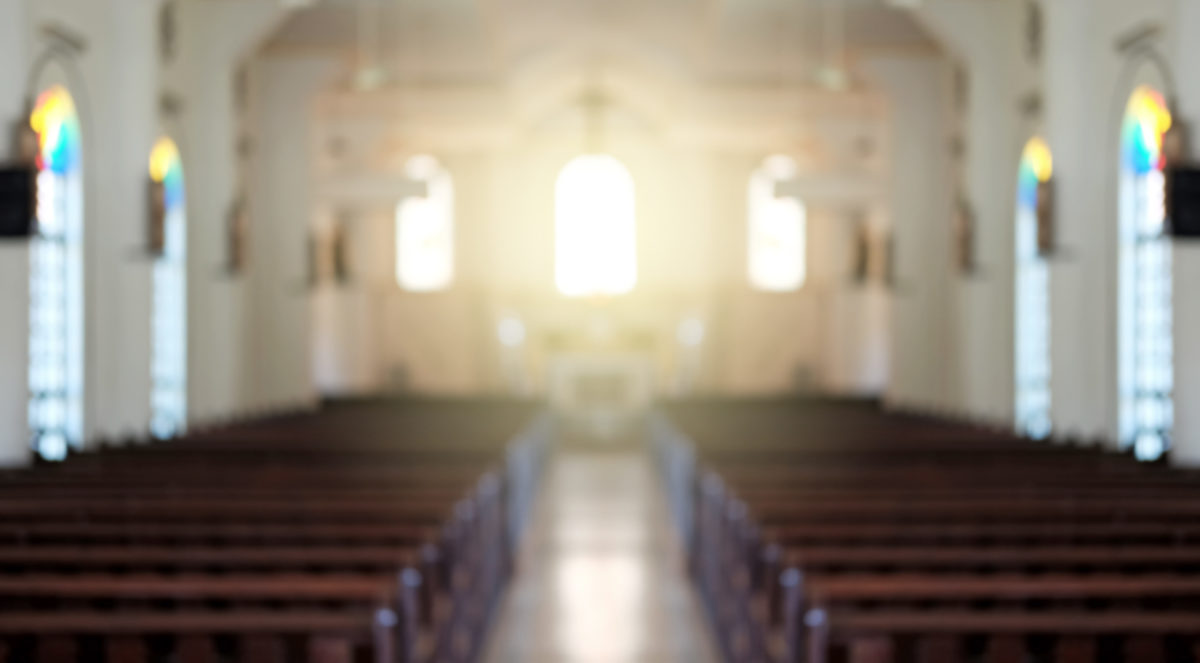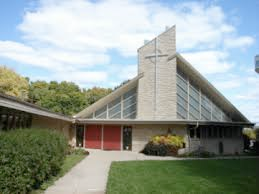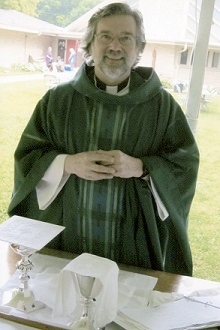How a Church Can Dare to Die–or Live
Co-Missioners,
We’ve been hearing about America’s dwindling churches for several years now. The evidence is easy to find. The trends in your own congregation will likely provide some. Or look at your judicatory’s reports to see how any of its churches have dissolved over the past five years.
Steve Kuhl serves an Episcopal congregation that is presently facing this peril. He addressed it squarely in his report for an annual meeting at the end of January. Who can guess what the pandemic has since done to exacerbate the woes that little flock is facing?
Woes like these are surely on the increase at the moment. With that in mind we decided to share Steve’s counsel to the saints of St. Mark’s, South Milwaukee. Among you are some who might find them of more immediate use than you want them to be. We’ve appended some subsequent thoughts that Steve sent in a note to our editor.
May the Spirit imbue every pastor—every lay leader too—with the wisdom Steve evinces here.
Peace and Joy,
The Crossings Community
As the Money Runs Out. A Pastor’s Counsel
We do not live to ourselves, and we do not die to ourselves. If we live, we live to the Lord, and if we die, we die to the Lord; so then, whether we live or whether we die, we are the Lord’s (Romans 14:7-8).
Dear Partners in the Gospel,
We live in a world that is fixated on survival. Indeed, evolutionary science teaches that survival is the most basic drive in nature. Knowing no other life than “this life” we tend to do almost anything to keep it. Unfortunately, that “natural” feature of life can have very dire behavioral and ethical consequences: it often causes us to “live to ourselves,” which, as Paul knows, is the perfect description of “sin.” Yes, sin is nothing other than the inclination to “live to ourselves,” and that contradicts the purposes for which God created us, namely, so that we might “live to the Lord.” “To live to ourselves” is sin because it is the opposite of loving God above all else and loving the neighbor as yourself. “To live to the Lord” is to love God even above ourselves and to love others as Christ loves us.
As Paul tells us, “living to the Lord” is impossible without also “belonging to the Lord.” Therefore, the whole focus of Paul’s ministry—and ours as a Christian congregation—is to convince people that, by virtue of Christ’s invitation, they, too, can “belong to the Lord.” To be sure, that kind of conviction entails trusting two things about the Lord: first, that he is a forgiving Lord, and second, that he has our “survival”—the promise of eternal life – as his promise to us.
Indeed, so intent is God’s desire to forgive and give eternal life to everyone that he enjoins us, who are so convinced, to do two things: 1) to support and encourage one another in this conviction (that’s why we gather for worship every Sunday) and 2) to go into the world to convince others of it (that’s why we, as a parish, focus so much of our energy and resources on outreach). Indeed, it is no stretch to say that these are the two reasons why we exist as a Christian congregation. We are not a social club for ourselves, but the body/corpus of Christ, a service corps for the Lord and his gospel.
 As we begin a new year of ministry at St. Mark’s, I know that the question of our survival as a congregation looms large. We cannot sustain the present financial course we are on and continue as an “institution” with legal and corporate standing. And it is important that we talk about that question honestly and openly. But in doing so, let us always remember that the issue is not whether we live or whether we die, individually or corporately, but whether we remain the Lord’s. That means our task is to discern the will of the Lord who, we trust, has all things (including the matter of our life and death) securely in his grasp.
As we begin a new year of ministry at St. Mark’s, I know that the question of our survival as a congregation looms large. We cannot sustain the present financial course we are on and continue as an “institution” with legal and corporate standing. And it is important that we talk about that question honestly and openly. But in doing so, let us always remember that the issue is not whether we live or whether we die, individually or corporately, but whether we remain the Lord’s. That means our task is to discern the will of the Lord who, we trust, has all things (including the matter of our life and death) securely in his grasp.
I say this having lots of personal experience with losing “institutions” that have been important to me: the engineering company I worked for (McDonnell Douglas Corporation), the seminary I was educated in (Seminex), the church body I was ordained in (AELC), the seminary I taught in (St. Francis de Sales Roman Catholic), and one congregation I served. None of these exist anymore—and yet, the work they all carried out is still being done for the people who need it. This experience confirms for me that we have no promise that the “things of this world” will last, whether they are good things or not. Indeed, Jesus tells us they won’t. But he also tells us this: we do have the promise of “a new age to come” in which we will live with God forever in a new creation that is both individual and corporate.
I do not say this because I think it is necessarily time for St. Mark’s to die. Frankly, I don’t know. God may have a new chapter planned for us or he may not. Therefore, I need to do what I think all of us need to do. We need to discern God’s will through prayer and discussion. Both are essential to discerning the will of God as to whether or not we are at this moment to live to the Lord or to die to the Lord.
Of course, the discussion piece in the process of discernment can be especially hard—especially, in a situation like ours where some manner of change is inevitable. Change is inevitable, first of all, because our culture has changed. For many people the need for being part of a spiritual community does not make sense. Spiritual individualism is on the rise. The challenge is not to give in to this, but to find a way to meaningfully speak to it, especially to the spiritual loneliness that is endemic to it. I personally think that spiritual individualism is a form of self-deception because it masks the not-so-subtle spiritual alienation that plagues our age.
But, second, change is also inevitable because our South Milwaukee community is changing, both economically and demographically. Conventional wisdom would describe South Milwaukee as a community in decline because its economic condition is one of decline, and that makes it especially difficult for its local institutions to survive.
It is true that South Milwaukee is in economic decline. Over recent years, it has lost dozens of businesses and, presently, its poverty rate of 16.3% is three percentage points above the State average rate of 13.2%. (FYI: In Wisconsin the poverty line is drawn at $2050/month for a family of four and $1005/month for a single individual.) In addition, during this past year, one in three persons in South Milwaukee qualified for food aid from South Milwaukee Human Concerns (our local food and clothing bank) and, as you will remember, we at St. Mark’s contributed $250 to the local school to offset the unpaid portion that students were to pay in order to receive school lunch. These meals would cost the student only 25 cents per meal, and still that was more than their families could afford.
Although these economic facts are true, God’s wisdom would tell us that South Milwaukee is nevertheless rich with people who need the gospel. And that’s why we, the People of God at St. Mark’s, are here! I’m reminded of the story of St. Lawrence. He was a deacon in the city of Rome in the third century A.D. when the church was under severe persecution by Rome. As it happened, the city prefect demanded that the deacon, who was in charge of the treasury of the church, turn the church’s riches over to Rome. In response, the deacon gathered together the poor people of Rome and said to the prefect, “These are the treasures of the church.”
Given these changes, having a good discussion will be hard. Not only because the social situation is complex, but because good discussion is personally and spiritually challenging. In traditional Christian language, good discussion will reveal to us what it means to bear the cross, to count the cost, and to measure the sacrifices that need to be made; and it will do this without giving us any assurances that we will “survive” as a legally defined congregation. In short, good discussion bears the marks of Jesus’ definition of discipleship. It means denying ourselves, taking up the cross (not just the burden of our sin but the burdens of others) and following Jesus. Good discussion is hard because it always, in some way, includes discussion about the possibility of dying—but with this caveat, the promise of Christ, which says, “Fear not, for whether you live or whether we die, you are the Lord’s.”
In good discussion all points of view need to be heard, even though all points of view will not necessarily be sustained. That fact, however, does not make them less valuable. Rather, it means that their value lies in the fact that they help us to clarify our thinking by helping us to hone in on making a decision from a large array of possibilities. So please, plan to be part of the discussion. For we will be putting together numerous opportunities for a good discussion on the future of St. Mark’s throughout the year.
Finally, not to preempt the discussion but to begin it, let me throw out a few ideas for you to think about, understanding that you may have other, even very different, ideas that you would like to discuss. In our discussion, I think we will need to consider:
 What assets, gifts, strengths and resources do we have as a congregation?
What assets, gifts, strengths and resources do we have as a congregation?- What deficits and limitations do we have as a congregation?
- What changes or challenges do you see happening in our congregation, in our community, and in our culture that need addressing by us if we are to serve effectively our members and the outside community?
- If we close, how do we ensure that the spiritual needs of our members would be met?
- If we close, could we provide assets, gifts, and resources to another congregation that we might join?
- If we continue, how do we envision our ministry to our present members and to the wider community of South Milwaukee? What changes would we need to make?
- If we continue, what sacrifices are you, personally, able and willing to make in order to contribute to the mission of this congregation?
The Rev. Dr. Steven Kuhl, Rector
St. Mark’s Episcopal Church, South Milwaukee
January 27, 2020
+ + +
Addendum: On Providence and Promise
From a note to our editor—
Let me give you a little update. We think [St. Mark’s] will be able to make it through the year with [drastic expense cuts], but not for much more than a year or two beyond that if the membership giving continues as is. However, who knows how those matters will go with this new pandemic challenge? As I tell my vestry (aka church council), if we can’t sustain an institutional presence as a parish, we will not be left without the Word and Sacraments. There are other options in the area. What we need to do, therefore, is to put access to the Word of God first and access to our own building and self-subsistence as a parish second.
Of course, that is hard for people to do, even good Christian people. They have strong ties to what I would call their familiar “creature comforts,” their outward parish life, which could be here today and gone tomorrow, and they fear and lament losing it. So do I. But what I want them to remember is that they need not let losing those “creature comforts” tempt them into thinking they are losing the Word and Sacraments. There is no reason to think that God will not continue to provide his Word—with or without the familiar, past creature comforts. The distinction is between providence and promise. Divine providence concerns God’s mysterious, hidden rule through the law over the transitory nature of our creature comforts, which might be here today and gone tomorrow. They can come and go at a moment’s notice, sometime for reasons that can be understood and sometimes for reasons that can’t. But the promise has to do with the eternal nature of God’s spiritual comforts, God’s Promise in Christ, his rule through the gospel and sacraments, the reasons for which are oh, so clear, a life grounded beyond the transitory nature this life, whether it is lived in this life or in the life to come. This promise has a way abiding securely even in the worst of times, when everything around us is collapsing. As Luther put it, “though life [creature comforts] be wrenched away, [the foe] cannot win the day. The kingdom’s [spiritual comforts are] ours forever!”
SK
April 3, 2020
Thursday Theology: that the benefits of Christ be put to use
A publication of the Crossings Community